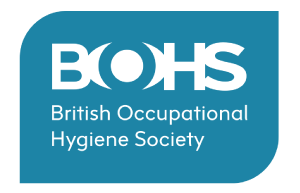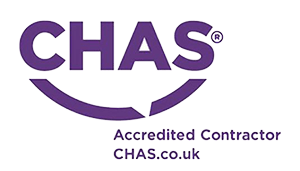Call the experts on: 01706 878 330
The Thorough Examination & Testing (TExT) of Local Exhaust Ventilation (LEV) Systems is a legislative requirement to ensure all spraybooths are safe to use and able to perform at their optimum operational capability without endangering the lives of the operatives. All tests carried out for our clients are completed by Beta Group’s team of highly skilled engineers located across the UK.
Local Exhaust Ventilation (LEV) systems are control systems designed to reduce exposures to airborne contaminants such as dust, mist, fume, vapour, or gas in the workplace.
Exposure limits defined by the Control of Substances Hazardous to Health (COSHH) 2002 are in place to control the effects of substances hazardous to health, depending on the nature of the substance and the effects of exposure. LEV systems provide a level of control to protect the workforce which is why they need to be regularly tested and maintained to ensure they are operating optimally.
Contaminants can have harmful effects on human health, as well as the environment. Without a fully functioning LEV system, operatives can be exposed to contaminants within a spray booth, which could result in occupational illnesses, including severe asthma.
Long-term or increased levels of exposure to harmful substances can lead to more serious symptoms and conditions affecting human health. Pollutants like these effects the respiratory and inflammatory systems but can also lead to other serious conditions.
If a company is found to be failing to comply with current LEV legislation and has not taken the appropriate steps to rectify the problem, they could be risking the health of their workforce and leave themselves open to cases of workplace negligence.
All LEV systems must be maintained to the highest standard. Operatives should undertake daily checks on the integrity of the system and its performance. The findings should be recorded in individual logbooks for each LEV system. High readings from the pressure gauges across the filter should be reported to the maintenance team, who should check the condition of the filter and replace it as soon as possible.
Any other damage/faults with the LEV systems, such as to the ducting, lights, or enclosure/hood must be repaired immediately. The duty of care to maintain the LEV system and to ensure it is safe to use is with the company.
Servicing your LEV system increases your protection against unexpected breakdowns, which can lead to expensive downtime and costly repairs. Regular servicing may also identify any problems with the filters and ductwork, allowing them to be replaced/cleaned before affecting the LEV system’s safety or performance.
TExT is an HSE requirement under Regulation 9 of COSHH 2002 and HSG258 Guide to Controlling Isocyanate. TExT must be carried out on all LEV systems at least once every 14 months, or more frequently if previous inspections have highlighted concerns.
Beta Group’s engineers are qualified to British Occupational Hygiene Society (BOHS) P601 standard (Competence in Thorough Examination & Testing of LEV systems). During the test, our engineers inspect all aspects of the system, with the work carried out including:
In addition to these specific inspections, Beta Group’s engineers carry out tests to assess the overall effectiveness of your LEV system in controlling contaminant clouds. These may include smoke tests to determine how isocyanate clears from an enclosure and looking for any leakages in the system.
As part of the Thorough Examination Test, our engineers will carry out a Smoke Clearance Test to identify how long it takes for a spray booth to remove all traces of isocyanate once the spraying has ceased. Smoke is used to replicate the behaviour of isocyanate vapour within a spray booth cabin.
Once the test is complete, and there is no sign of smoke leaking in the ducts or from the doors, engineers will attach a clearance poster on each door of the spray booth letting operatives know how long they must wait before they can enter without wearing respiratory protective equipment (RPE).
Beta Group offers specialist solutions to ensure more reliable effective control measures for operatives to protect themselves from exposure to isocyanate. These include automated indicator systems to ensure operatives know when a cabin is safe to enter.
Depending on the design and condition of your LEV system, sometimes our engineers will have to fail a LEV system. Common reasons for failing a TExT test include poor/uneven airflow, low efflux, along with defects such as cracked lights and door glasses.
Any LEV system that has failed a TExT will be given a list of recommendations by our engineers to ensure the system can be restored to good working condition. These recommendations must be completed as soon as is possible, and a retest carried out.
If your LEV system is due for its statutory testing, then give us a call today on 01706 878 330. You will have the peace of mind of HSE compliance through using one of the UK’s leading LEV testing companies.
All services undertaken by Beta Group are completed by our team of highly competent engineers. Our staff are BOHS P601 trained and the work completed complies with the standards of the Gas Safe Register. Beta Group is always on hand to offer professional guidance and advice, ensuring that our customers are kept up to date with the changes and requirements of the current standards.
Alongside consultation and advice, Beta Group provides market-leading spray booth filters, as well as our AfterCare™ products to protect your spray booth. You can speak to our team by calling 01706 878 330 or using our Contact Form.









